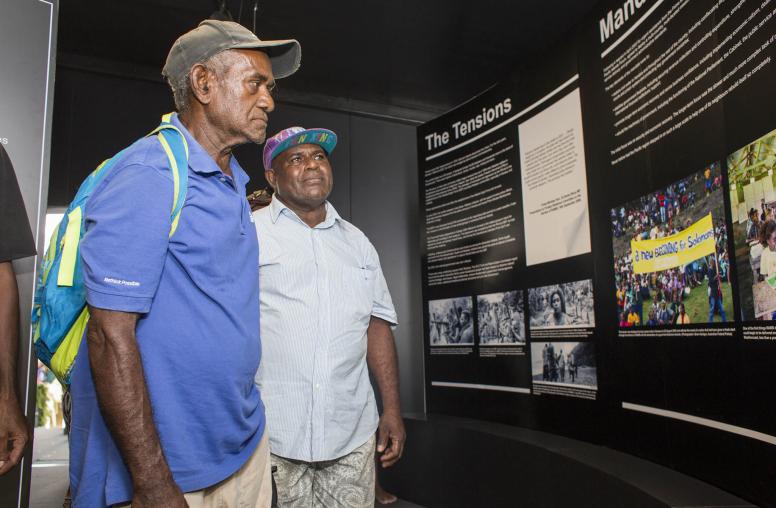Hinge of History: Governance in an Emerging New World
Former Secretary of State George P. Shultz on Global Technological, Demographic, and Geopolitical Shifts
Read the Event CoverageWith rapid technological change, shifting global demographics, and tectonic geopolitical shifts, the world faces an inflection point—where the choices that leaders make in the coming years will have profound implications for generations. In response to this moment, former Secretary of State George P. Shultz has organized a project at Stanford University’s Hoover Institution called Hinge of History: Governance in an Emerging World to explore what these shifts mean for global democracy, economies, and security.
On December 2, USIP and Stanford’s Hoover Institution held a timely conversation on the project’s findings and its implications for U.S. and international policy. The panel discussion evaluated the major demographic, technological, and economic trends that are creating tectonic shifts in our geopolitical landscape and forcing a strategic rethink of governance strategies in the 21st century. In light of the challenges identified, panelists also considered how the United States and others can harness these changes to usher in greater security and prosperity.
Continue the conversation on Twitter with #HingeofHistory.
Agenda
2:00pm – 2:20pm | A Conversation with Secretary George P. Shultz
- The Honorable Stephen J. Hadley
Chair, Board of Directors, U.S. Institute of Peace - Secretary George P. Shultz
Thomas W. and Susan B. Ford Distinguished Fellow, Hoover Institution, Stanford University
2:20pm – 3:20pm | Panel Discussion: Governance Strategies for the Emerging New World
- Ambassador George Moose, moderator
Vice Chair, Board of Directors, U.S. Institute of Peace - Dr. Chester A. Crocker
James R. Schlesinger Professor of Strategic Studies, Georgetown University - Dr. Lucy Shapiro
Virginia and D. K. Ludwig Professor of Developmental Biology, Stanford University - Dr. James P. Timbie
Annenberg Distinguished Visiting Fellow, Hoover Institution, Stanford University - Dr. Silvia Giorguli-Saucedo
President, El Colegio de México
3:20pm – 3:30pm | Closing Remarks
- Ambassador George Moose
Vice Chair, Board of Directors, U.S. Institute of Peace




